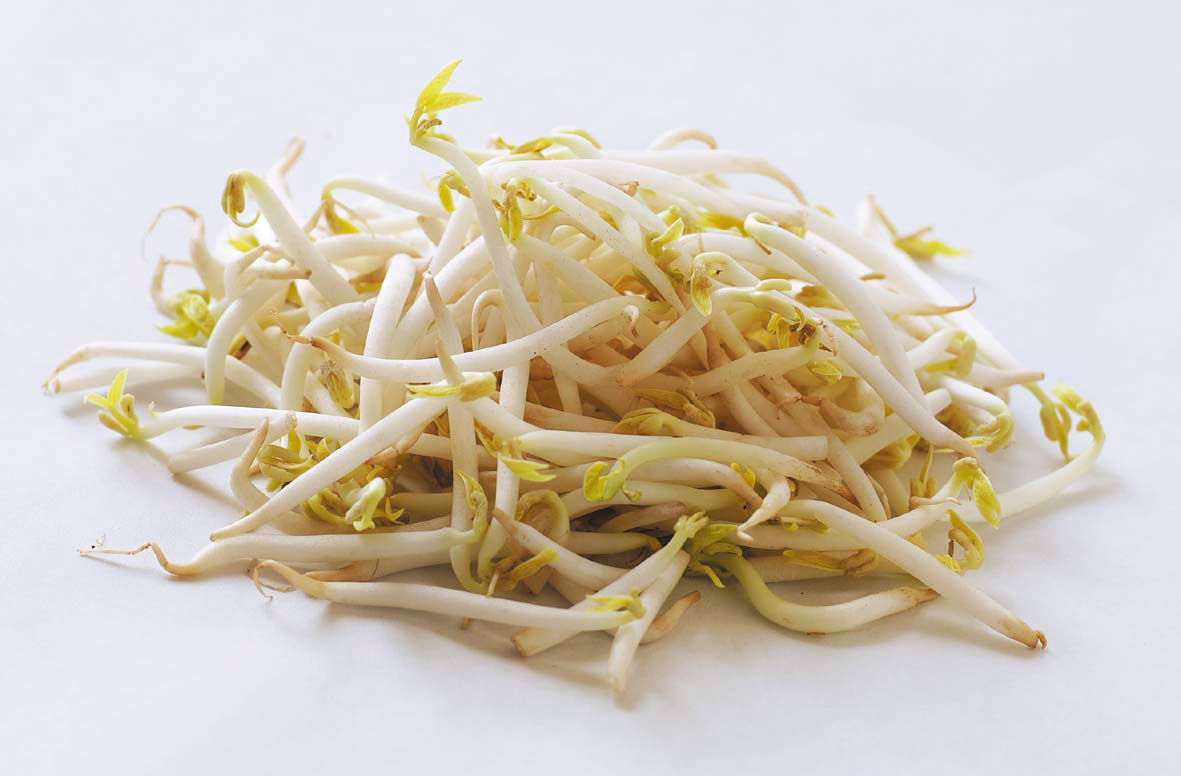How to Grow Bush Beans Gardener’s Path

PostVacation Garden Growth Modern SelfReliance
Here are our seven tips to grow prolific beans in containers. 1. Pick the Perfect Location. Beans need a good amount of sun to produce well. Look for a spot that gets at least eight hours of sunlight each day. If a location this sunny is difficult to come by, look for a variety of pole bean that is more shade tolerant.

How to Grow Bush Beans Gardener’s Path
Beans: garden beans-including pole, bush, and shell-lima beans, mung beans, scarlet runner beans, asparagus beans, and southern peas (which are not beans but share similar cultural requirements). All of these crops share similar problems. Here is a list of common bean problems and possible causes and cures.

Growing bean sprouts at home Makergardener
Bush beans - Most bush bean seeds should be planted about 2-3 inches apart in slightly raised rows at least 18 inches apart. You'll need to thin these to about 3-6 inches apart after germination. Lima bush types are bigger plants and need to be about 6 inches from each other.. Bean sprouts are an excellent way to make beans do more for.

12 Playful Planting Projects for Kids to Try at Home
Dry beans, and all beans, are among the simplest to plant of anything we grow in the garden. Remove weeds and work in some compost for soil structure. Plant bean seeds about an inch deep. Space them according to the package instructions. Generally, bush-type beans grown in the garden can be planted with 4 inch spacing in rows 24 inches apart.

How to Grow Mung Bean Sprouts at home YouTube
Caterpillars. Cabbage loopers. Leafminers. Squash bugs. Beet armyworms. Cutworms. Aromatic Brussels sprout plant companions can help to ward off these pests and even attract beneficial insects, like ladybugs and parasitic wasps. Some of these aromatic plants are pleasantly scented, such as basil and mint. Others are more pungent, like garlic.

How to grow bean sprouts at home mungbean YouTube
Step 2: Rinse. Rinse the legumes well, then place them in your sprouting vessel (a widemouth mason jar works well). Step 3: Drain. Pour out the water. Secure a clean cheesecloth (or sprouting lid) over the jar using rubber bands. Prop the jar upside down at an angle to allow excess water to drip out.

Health benefits of Bean sprouts HB times
Time sowing so that beans come to harvest before the first frost. Optimal soil temperature for growing bush or pole beans is 70°F to 80°F (16-18°C). If you want to start beans indoors, sow seed in peat pots 3 to 2 weeks before transplanting seedlings to the garden. The optimal indoor temperature is 65°F (18°C) until germination.

How to sprout beans Ministry of Curry
Plant bush beans in either rows or blocks, with 4-6 inches between each seed. Plant the seeds 1-2 inches deep and be sure to water the soil immediately and regularly, until it sprouts. Pole beans will need some type of support to grow on. Be sure the trellis, teepee, fence or whatever is in place before you seed.
Bluestone River Farm bush beans sprout
The bean sprouts themselves are usually about 5 inches in length. In terms of taste, this is another popularity mark for this delicious bean variety! As a whole, you will find that Slenderette Bush Beans are incredibly juicy and have a sweet flavor, which makes them ideal for pairing with countless savory dishes as a side.

Provider Bush Bean Seeds Heirloom Hometown Seeds
Grow Unlimited Bean Sprouts Right At Home! No crop is easier than growing sprouts, and Mung Bean sprouts are the easiest of them all! In today's video, let's.

Provider Bush Snap Bean, 28 g Southern Exposure Seed Exchange, Saving
Grow it near the base of the plant, but not so close that the bean plant shades it. Potato: Potato plants help to repel Mexican bean beetles from bean plants. In return, bean plants can repel the Colorado potato beetle. Other plants that are good companions to pole beans and bush beans include: Broccoli. Brussels sprouts.

Bean Sprouts Free Photo Download FreeImages
A small cup should give plenty of sprouts. Using a colander or strainer, rinse the beans in cold water until it runs clear. This removes dust and other impurities. Drain, rinse, and drain again. Place the rinsed beans in a bowl and immerse in water overnight for 12 hours. A ratio of 1:3 for beans to water is fine.

Yellow/Wax Bean (Bush) Major Prairie Garden Seeds
Beans will germinate when the soil is between 70°F and 80°F. If the soil temperature is at or around 60°F, the seeds will germinate much slower and be more prone to rot. The plants grow best when the air temperature is between 65°F and 85°F. Beans will usually stop flowering during the heat of the summer months.

Substitute for Bean Sprouts! Never Go Wrong with These KeepSpicy
How to Sprout Beans in 7 Steps. Written by MasterClass. Last updated: Jan 10, 2022 • 3 min read. Sprouting beans at home is easy and requires minimal equipment. Learn how to sprout dried beans.

Dwarf Bean Windsor Long Pod seeds The Seed Collection
Even with adequate site preparation and viable bush bean seeds, the seeds may fail to sprout. Among the most common causes of failure in bean seeds is cold temperatures. Temperatures below 70 F slow sprouting, whereas temperatures below 60 F may cause the seeds to fail entirely.

Bush bean hires stock photography and images Alamy
Climate. Bush beans grow best when the ambient air temperature is in the 65 to 85°F range. As mentioned above, soil temperatures should be between 70 and 80°F for germination. If your soil is below 60°F when you sow, the seeds can rot in the ground before they get a chance to sprout.